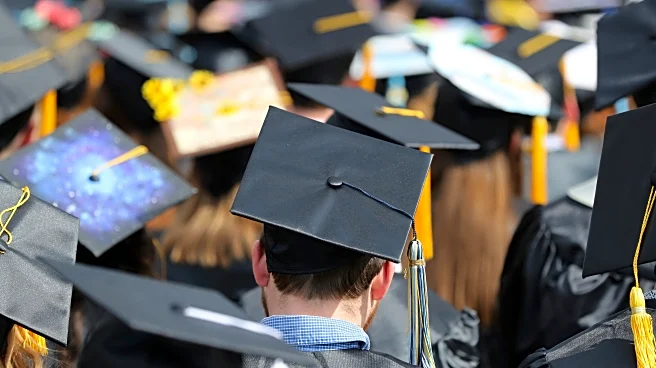Rapid Read • 8 min read
The University of Michigan has announced its intention to appeal the NCAA's decision regarding sanctions imposed on its football program. The sanctions stem from an investigation into sign-stealing and recruiting violations, primarily orchestrated by former staffer Connor Stalions. The NCAA's ruling included show-cause orders for former head coach Jim Harbaugh and current coach Sherrone Moore, along with fines potentially exceeding $20 million. Additionally, the program faces a 25% reduction in official visits for the 2025-26 school year. Despite these penalties, Michigan avoided a postseason ban, and past achievements, including the 2023 national title, remain intact.
AD
The NCAA's sanctions against Michigan highlight significant issues within collegiate sports, particularly concerning ethical conduct and compliance with regulations. The financial penalties and restrictions on recruiting could impact Michigan's ability to maintain its competitive edge in college football. Moreover, the scandal tarnishes the university's reputation, which prides itself on academic excellence and the 'Michigan Man' ideal. The appeal process will be crucial in determining whether Michigan can mitigate these consequences and restore its standing in the collegiate sports community.
Michigan plans to appeal the NCAA's decision, arguing that the ruling contains fundamental errors in interpreting NCAA bylaws and conclusions contrary to the evidence. The university aims to ensure a fair result and is considering all options. The appeal process will likely involve further scrutiny of the evidence and may lead to adjustments in the sanctions. Stakeholders, including fans and alumni, will be closely monitoring the developments, as the outcome could influence the program's future strategies and reputation.
The scandal raises broader questions about the culture of college sports and the pressures on programs to succeed at any cost. It also underscores the importance of oversight and accountability within athletic departments. The long-term implications could lead to increased scrutiny and reforms in NCAA regulations to prevent similar incidents in the future.
AD
More Stories You Might Enjoy












